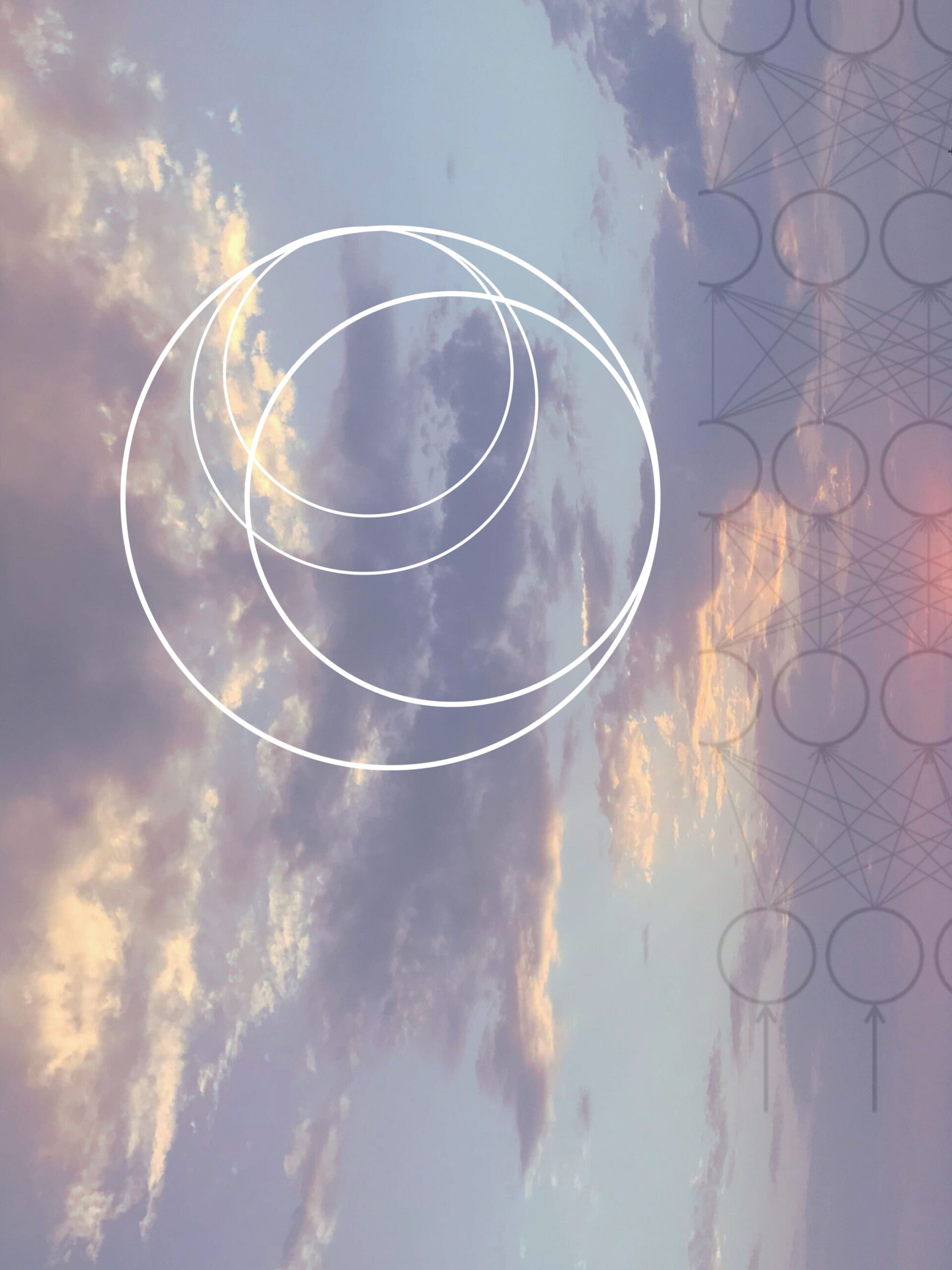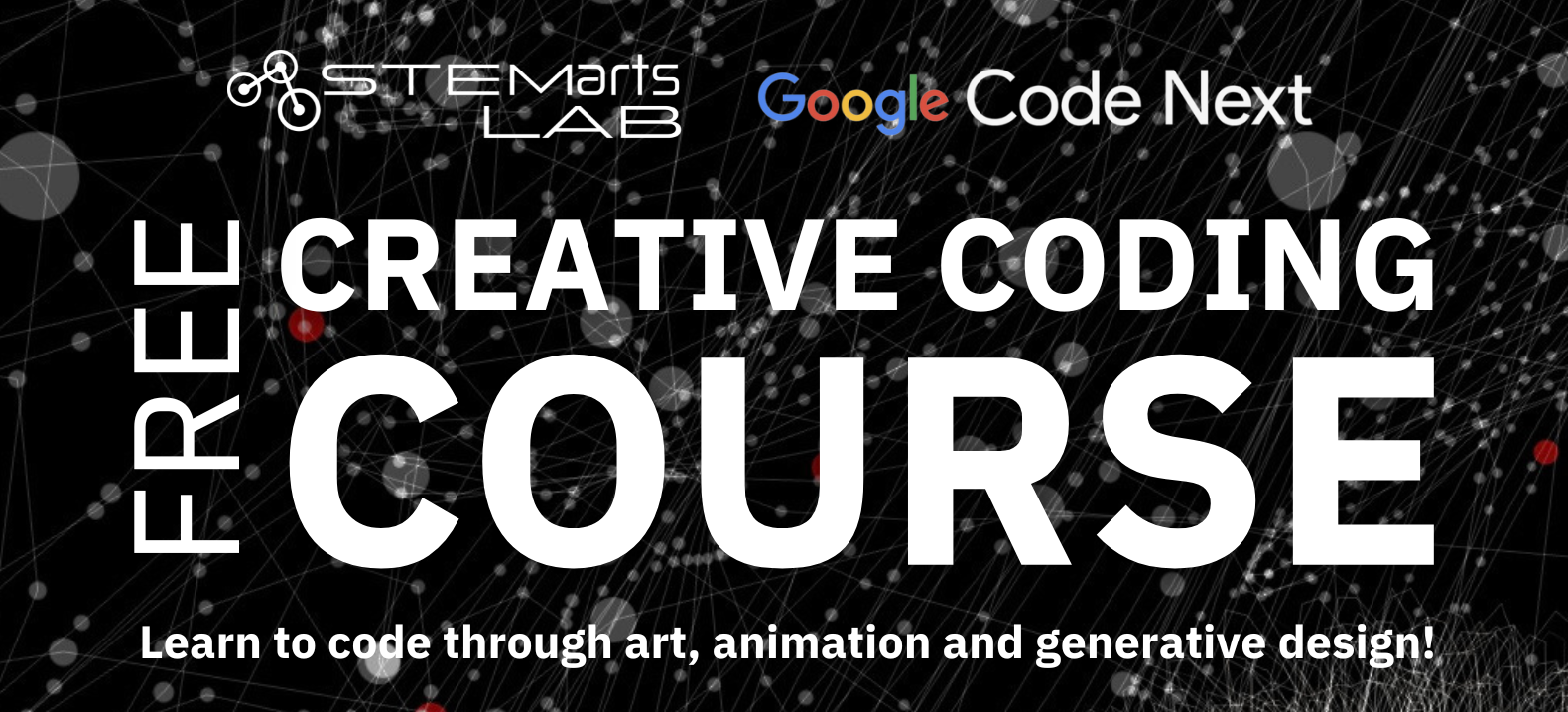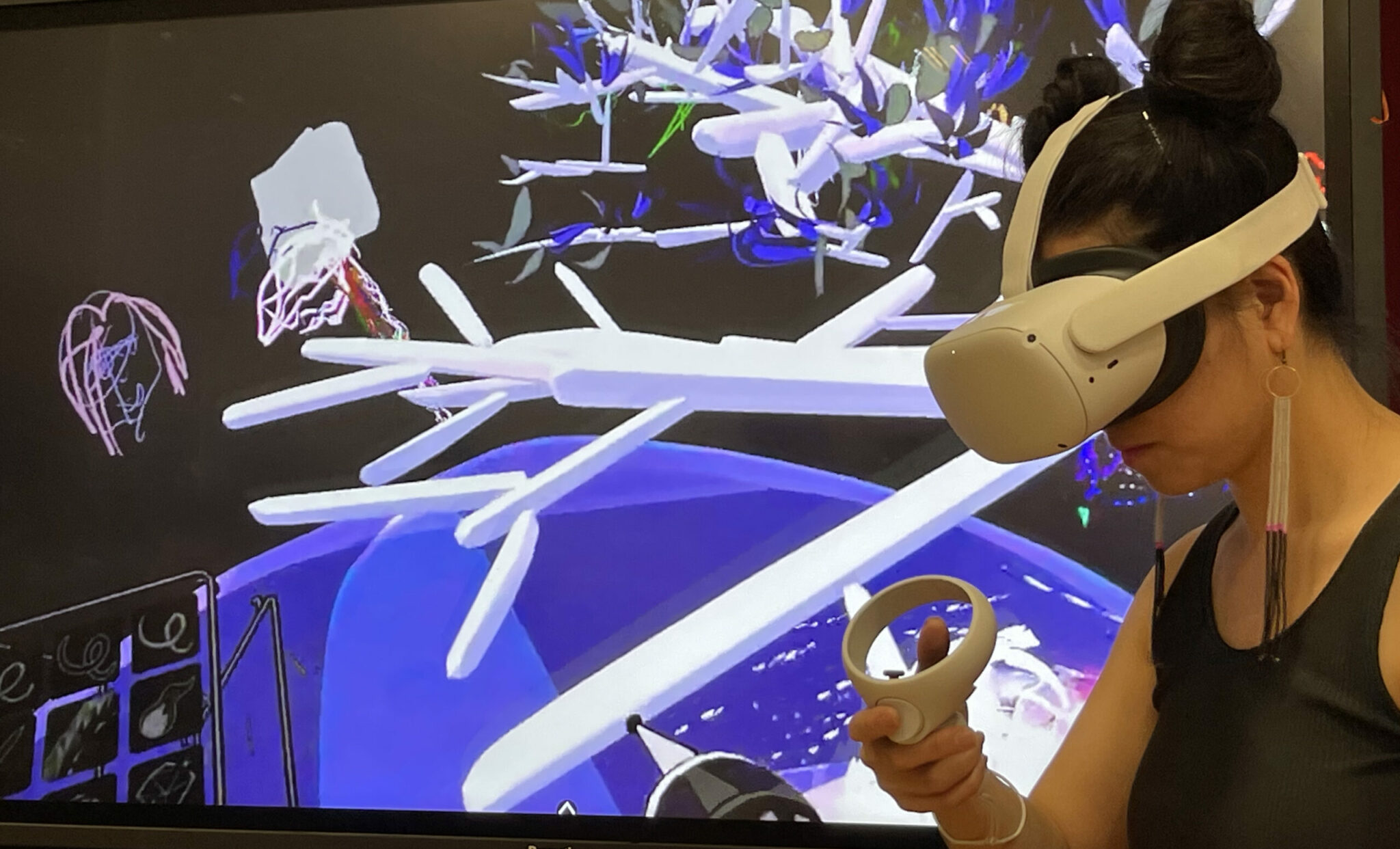Presented as part of The PASEO Festival, STEMarts Lab is producing the “A.I. in Action” Forum on Sunday, September 14, 2025 to open the door to a conversation for people to better understand what A.I. is, how it works, and how it can be used for good. This free event is open to the public from 2:00-4:00 PM at the Harwood Museum’s Arthur Bell Auditorium in Taos, NM. The interactive A.I. in Action Forum will showcase community-focused projects and creative applications of A.I. made possible through a grant from the Patrick J. McGovern Foundation.
Artificial intelligence is quickly becoming part of our daily lives—from the way we search for information to how we make decisions and tell stories. Guests are invited to join the nonprofit organizers and special invited guests for this human-centered, community-focused event where participants can explore, ask questions, and be part of the conversation.
“A.I. in Action is about more than A.I.as technology—it’s about community empowerment,” says organizer Agnes Chavez. “We want to empower youth and citizens to participate in shaping an ethical and inclusive AI future.”
Compelling presentations and immersive demos from guest speakers will highlight the power of A.I. when guided by ethics, creativity, and community values. Audiences will explore how A.I. can serve as a force for good to include community-engaged art, culture, and storytelling.
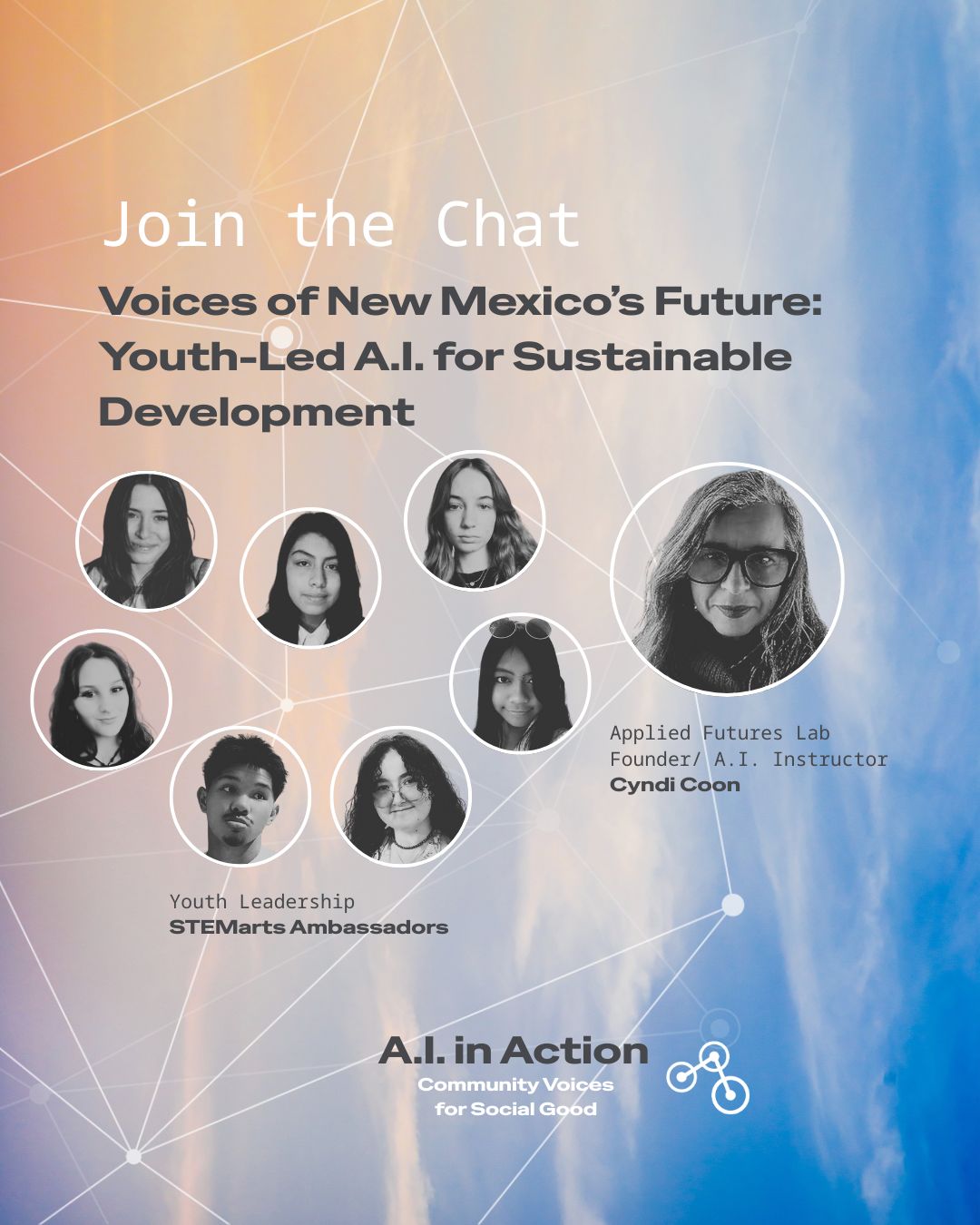
The afternoon will begin with a virtual welcome from Vilas Dhar, President of the Patrick J. McGovern Foundation, who will speak to the urgent need of building A.I. literacy worldwide and empowering every community to take part in shaping an inclusive, human-centered A.I. future.
Following this welcome from Vilas Dhar, the program will feature a series of engaging conversations with artists, youth leaders, and A.I. experts. This event is designed to spark curiosity, open meaningful dialogue, and empower attendees to take an active role in shaping a more ethical and inclusive A.I. future.
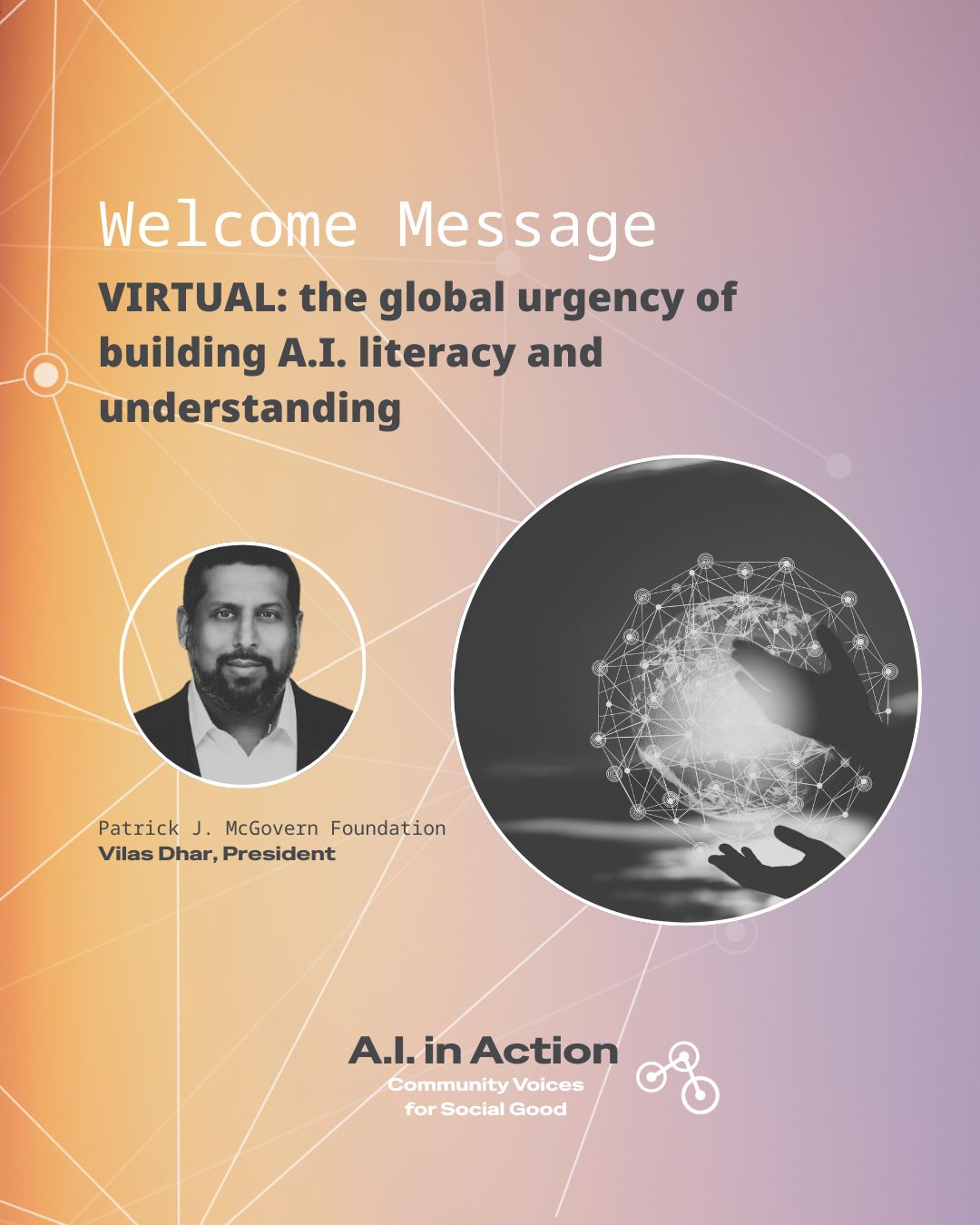 Voices of New Mexico’s Future: Youth-Led A.I. for Sustainable Development
Voices of New Mexico’s Future: Youth-Led A.I. for Sustainable Development
Moderated by: Cyndi Coon, Futures Thinker, and STEMarts Ambassadors
This portion of the presentation will be a fireside chat focused on ethical, empathetic, and culturally grounded applications of A.I.. Attendees will walk away with a new understanding of responsible A.I. innovation aligned with the UN Sustainable Development Goals (SDGs) – driven by youth.
Led by STEMarts Lab’s A.I./Data Science STEAM Team, youth will share how they are using generative A.I. to explore real-world solutions to local and global challenges through a community-centered lens.
Students ages 14–24 from Taos, New Mexico, conduct place-based research by interviewing community members to identify pressing needs where A.I. could make a difference. Using tools like ChatGPT, Perplexity, Claude, Suno, Loveable, and NotebookLM, participants turn their insights into speculative narratives and AI-powered prototypes.
These youth-led projects show how generative A.I. can support sustainable development when applied with empathy, creativity, and cultural awareness. Students will join the fireside chat to share their process and answer questions.
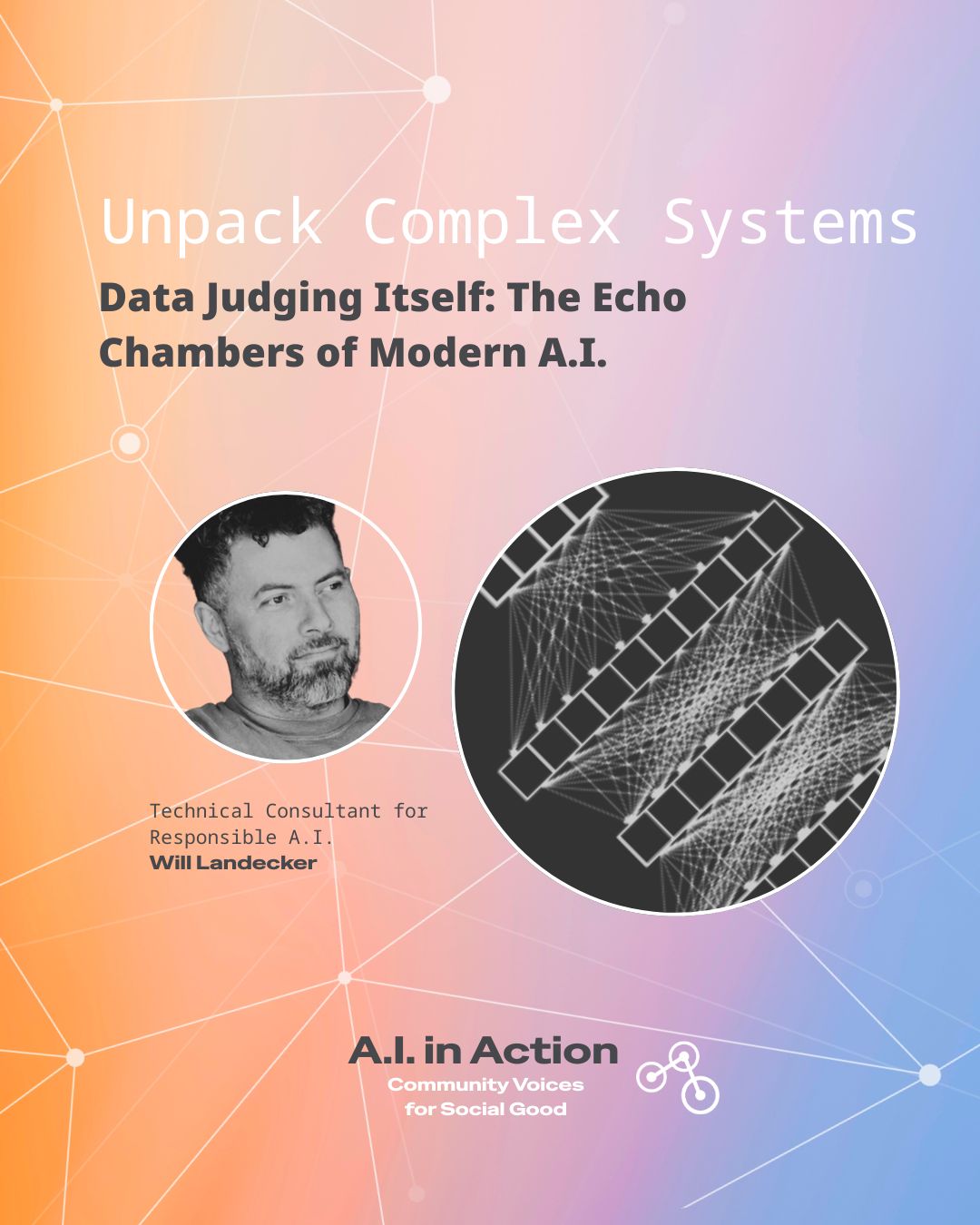 Data Judging Itself: The Echo Chambers of Modern A.I.
Data Judging Itself: The Echo Chambers of Modern A.I.
Presentation by Will Landecker
Will Landecker is a technical consultant for responsible A.I.. His research and consulting work focus on algorithmic fairness, transparency, trust, and safety. After completing a PhD in A.I. and a graduate research position at the Santa Fe Institute, he worked for 10 years at technology companies like Twitter, Lyft, Stripe, and Nextdoor.
In his presentation Will explains how modern A.I. systems are trained and evaluated using enormous datasets spread across thousands of computers. The scale of these systems makes them hard to understand intuitively, but at their core, they follow the same rules as any other computer program: they receive input, they follow a recipe, and they create output. In this talk, he will demystify the recipes followed by these algorithms. Along the way, we will talk about why it’s so hard to measure and quantify progress for the modern wave of AI systems, and how undesirable aspects like bias and discrimination sneak into the algorithms.
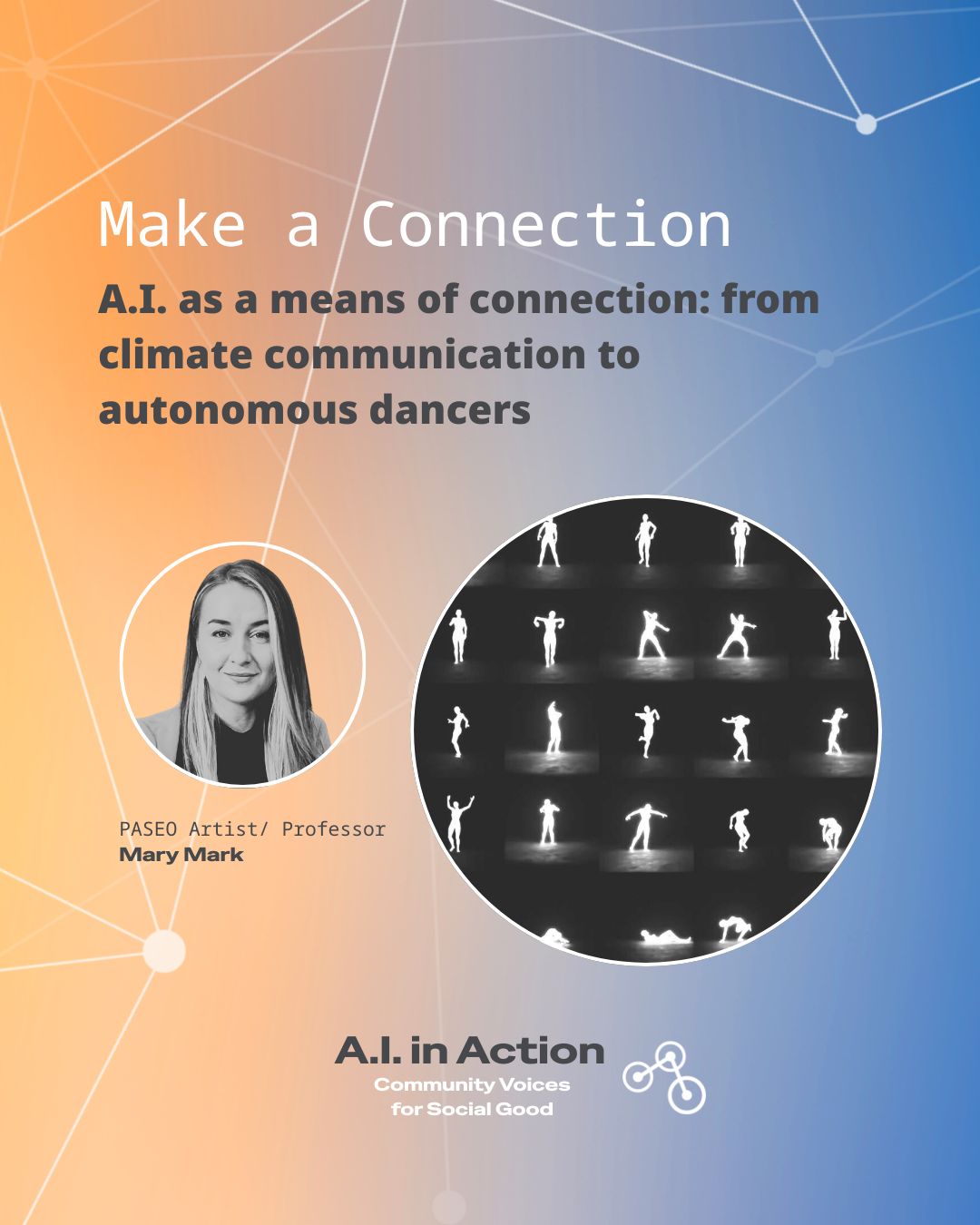 A.I. as a means of connection: from climate communication to autonomous dancers
A.I. as a means of connection: from climate communication to autonomous dancers 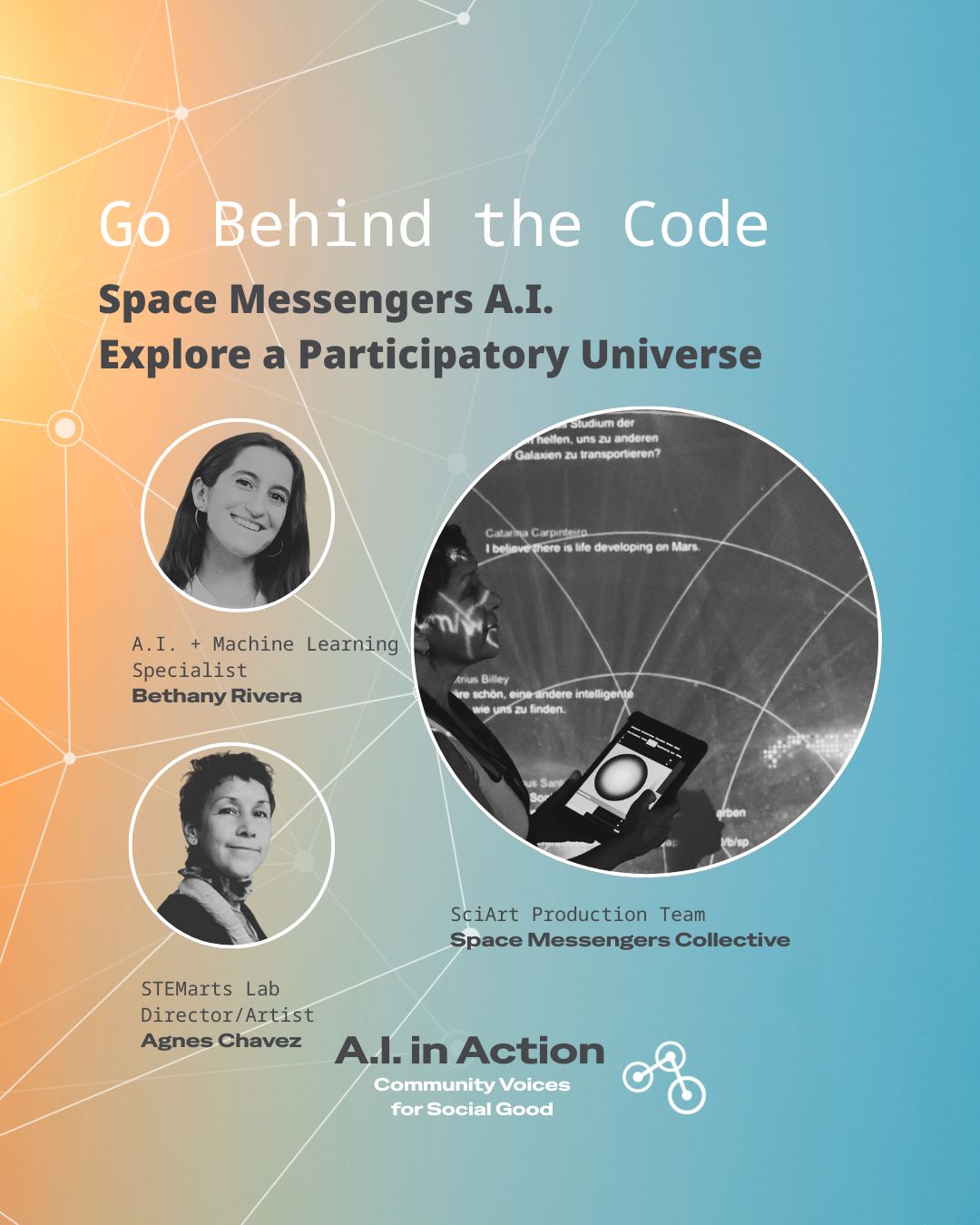 Behind the Code: Space Messengers A.I.
Behind the Code: Space Messengers A.I.
Agnes Chavez, Creative Director and Bethany Rivera, A.I. specialist, Space Messengers Collective
Agnes and Bethany will take you behind the scenes of the Space Messengers A.I. installation that will be projected at The PASEO Festival on to the Taos Council building off of Civic Plaza Drive. This immersive art installation offers a glimpse into an international, community-driven project—brought to life through light, sound, motion, and responsive A.I. p
The custom A.I. Large Language Model (LLM), powered by science-informed and ethically-guided A.I. practices, was designed by an interdisciplinary team to categorize, cluster, and reconfigure thousands of messages—collected from youth and communities from New Mexico and around the world—which are then visualized as an interactive 3D display inspired by the Cosmic Web, continuously evolving as new messages are added in real time.
Through this immersive and participatory experience, every festival-goer becomes part of a living conversation—helping shape how we imagine the universe and our role within it.

